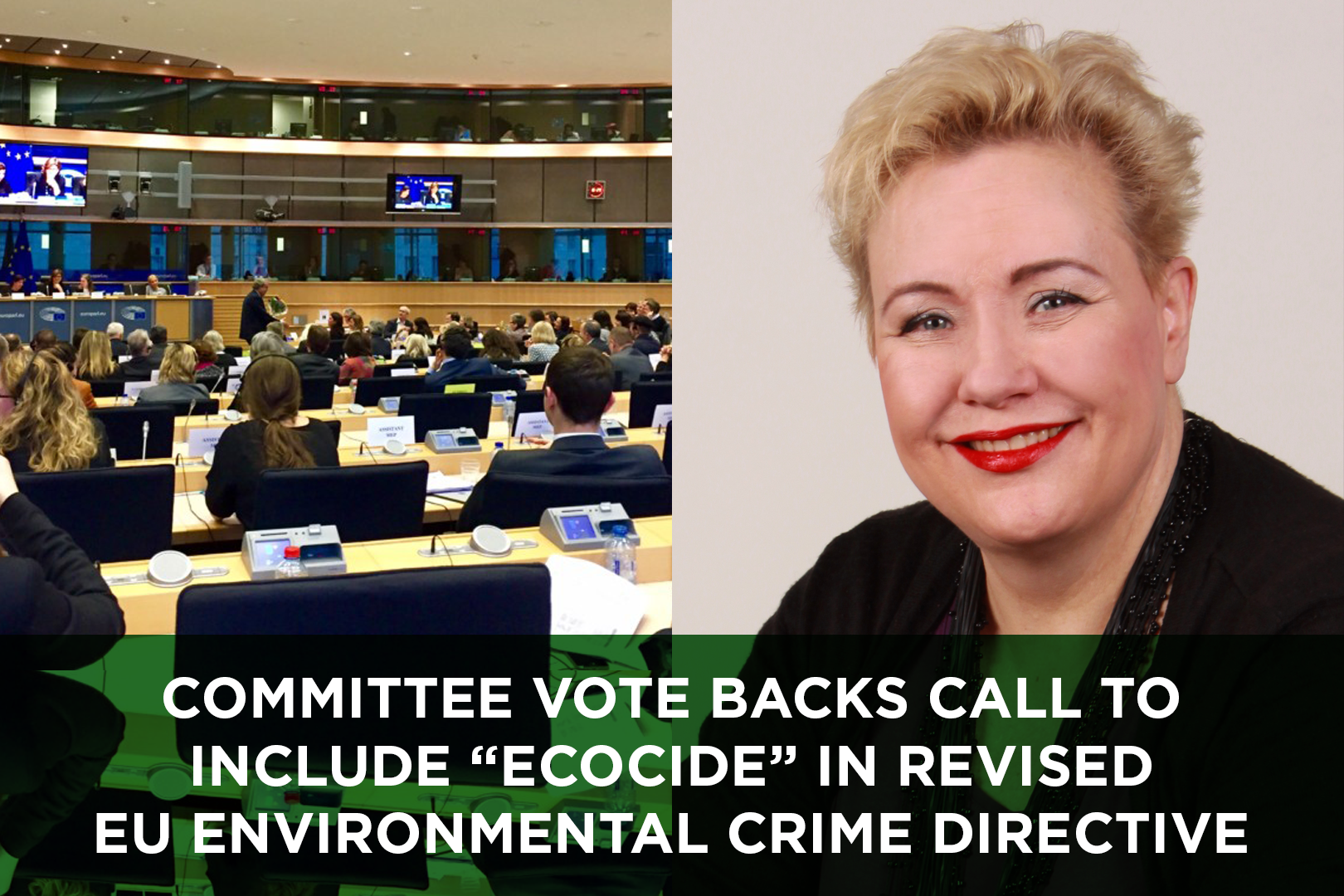Committee vote backs call to include “ecocide” in revised EU environmental crime directive
Over 200 organisations have endorsed a position paper calling for inclusion of a crime of ecocide in the revised EU Directive on protection of the environment through criminal law, an inclusion now backed by the EU's environmental affairs (ENVI) committee.
The paper, submitted to EU agencies by the Stop Ecocide Foundation, has just been vindicated by the vote of the committee on its proposals vis-a-vis the revision of the EU Directive. The committee has proposed inclusion of a standalone article in the Directive setting out an offence of ecocide to cover “severe and either widespread or long-term damage to the environment”. If adopted into the revised directive, this could enable member states to prosecute the worst environmental harms which are not specifically addressed as serious crimes in any member state at present. The EU’s economic and social committee has also endorsed the move.
Jojo Mehta, Chair of the Stop Ecocide Foundation said: “This vote is a vote for humanity’s future and the future of our precious planet. The revision of this Directive is a crucial opportunity. Ecocide is a key root cause of climate and ecological crisis. Recognising it is about getting real - it’s about recognising that when we recklessly destroy the living world that sustains us, we put everything in jeopardy: our lives, our children, the future of our own species and so many others… as those nations on the frontlines of climate and ecological breakdown already know only too well. On the other hand, when we put this legal “outer boundary” guardrail in place, we provide a foundational underpinning for protection of the environment, while also creating the enabling conditions for positive change. With the right legal framing, the innovation, creativity and investment in action we so desperately need can begin to flow in the right direction.”
She emphasised the importance of the definition of ecocide which emerged last year from an independent panel of legal experts convened by the Stop Ecocide Foundation.
“The consensus definition has become the de facto starting point for governments considering the criminalisation of ecocide, at international, regional and domestic level. Alongside the hundreds of organisations which have endorsed our paper, we urge its inclusion in this directive. For the EU to move forward with an aligned definition would show solidarity, moral leadership and practical legal action in the context of the global crisis facing us all.”
Support for an ecocide law criminalising mass damage and destruction of ecosystems is gaining momentum around the world with recorded interest from both island nations (Vanuatu, Samoa, Antigua & Barbuda, the Maldives) and European states (France, Belgium, Finland, Spain, Luxembourg, the Netherlands, Denmark). It has been endorsed by high-profile figures as diverse as the Pope, Greta Thunberg and UN Secretary-General Antonio Guterres. Belgium and Finland were the first European nations to express interest in criminalising ecocide at the International Criminal Court, and the European Parliament has now supported in principle on several occasions.
MEP Marie Toussaint, who has made it her mission to progress recognition of ecocide by the EU, is delighted:
"This is the first step of very promising negotiations in the European Parliament. Today, the Environment's committee not only asked to recognize the crime of ecocide in the European Environmental Crime Directive, it does so using the international definition of the Stop Ecocide Foundation's panel : "ecocide’ means unlawful or wanton acts committed with the knowledge that there is a substantial likelihood that those acts cause a severe and either wide-spread or long-term damage to the environment".
Discussions will now continue in other competent committees, including in the legal affairs committee, but today's vote shows that there is a political majority in the European Parliament for the recognition of ecocide.
Engaged in the Green Deal, the EU must be more ambitious in its fight against environmental crimes. This includes ending ecocides that destroy our common Earth. We cannot waste the opportunity that the revision of the Environmental Crime Directive gives us."
Patrizia Heidegger, Director for Global Policies and Sustainability, European Environmental Bureau, said:
“Environmental crime is the third largest crime category worldwide, incredibly lucrative, and undermines our environmental goals. Currently, committing environmental crimes in the EU simply pays off. Police detection is rare, effective prosecution even rarer, and judicial sentences are neither effective nor dissuasive. That needs to change. Recognising Ecocide in the Environmental Crime Directive will create a necessary prosecution tool to address the most heinous and dangerous violations of our environment. Legislators must use the revision of the directive to empower national police and prosecution services. We call for a comprehensive list of offences, strong sanctions, increased resources, and the guaranteed protection for environmental defenders who report crimes.”

